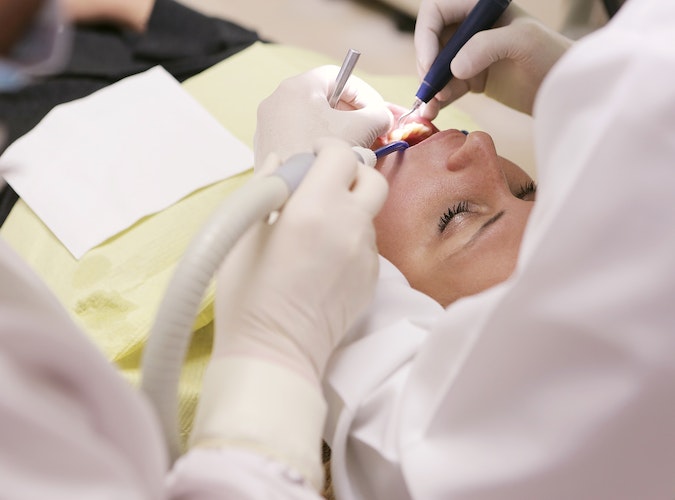
Aging is an inevitable process that affects every aspect of our lives, including our dental health. As we age, we become more susceptible to dental problems such as tooth decay, gum disease, and tooth loss.
These issues can have a significant impact on our overall health and well-being. Therefore, it is crucial to understand the effects of aging on dental health and learn how to deal with them effectively.
In case you want to learn more about these things, here are a few tips and tricks that might help you understand this important connection more thoroughly.
Tooth decay
One of the most common dental problems associated with aging is tooth decay. As we age, the protective layer of enamel on our teeth begins to wear down, making them more vulnerable to decay.
Additionally, medications that are commonly prescribed to seniors, such as those for high blood pressure, can cause dry mouth, further increasing the risk of tooth decay.
To prevent tooth decay, seniors should practice good oral hygiene, including brushing and flossing regularly and using fluoride toothpaste. They should also avoid sugary and acidic foods and beverages that can erode tooth enamel.
Gum diseases
Gum disease is another prevalent dental issue that affects seniors. It is caused by the buildup of bacteria in the gums, which can lead to inflammation, bleeding, and ultimately, tooth loss.
Gum disease is more common in seniors due to factors such as poor oral hygiene, decreased salivary flow, and decreased immune function.
To prevent gum disease, seniors should brush and floss regularly, use mouthwash, and visit the dentist for regular cleanings. They should also quit smoking, which is a significant risk factor for gum disease.
Tooth loss
Tooth loss is a common consequence of aging, and it can significantly impact a senior’s quality of life. Missing teeth can affect one’s ability to eat, speak, and socialize, leading to isolation and depression.
Fortunately, there are several tooth replacement options available, including dental implants and bridges, as well as a useful denture replacement that could solve your problem for good. These options can restore a senior’s ability to eat, speak, and smile confidently. To determine the best tooth replacement option, seniors should consult with their dentist.
Oral cancer
In addition to tooth decay, gum disease, and tooth loss, seniors are also at risk of developing oral cancer. Oral cancer is more common in seniors due to factors such as smoking and alcohol use.
Regular dental checkups and oral cancer screenings can help detect the disease early and increase the chances of successful treatment. Seniors should inform their dentist of any unusual symptoms, such as mouth sores or difficulty swallowing.
Healthy diet
A healthy diet is also essential for maintaining good dental health. Seniors should consume a diet rich in fruits, vegetables, whole grains, and lean protein while limiting sugary and acidic foods and beverages.
Calcium and vitamin D are also important for maintaining strong teeth and bones. Seniors who have difficulty chewing or swallowing may benefit from soft, nutritious foods such as smoothies, soups, and purees.
Good oral hygiene
Maintaining good oral hygiene is crucial to preventing dental problems as we age. This includes brushing and flossing regularly, using mouthwash, and visiting the dentist for regular checkups and cleanings.
Seniors who have difficulty brushing and flossing due to arthritis or other conditions can use adaptive dental tools such as electric toothbrushes and flossers.
Get some help
Seniors with mobility issues or disabilities may find it challenging to maintain good oral hygiene. In such cases, caregivers can help with tasks such as brushing and flossing, and specialized dental products, such as electric toothbrushes and flossers, can make the process easier.
Caregivers should also encourage seniors to maintain a healthy diet and schedule regular dental checkups.
Side effects of medication
Finally, seniors should be aware of the potential side effects of medications on their dental health and inform their dentist of any new medications they are taking. Some medications can cause dry mouth, which can increase the risk of tooth decay and gum disease.
Others can cause gum overgrowth, which can make it difficult to clean between teeth and lead to gum disease. Seniors should inform their dentist of any medications they are taking, including over-the-counter drugs and herbal supplements.
The dentist can then develop a personalized treatment plan that takes into account any medication-related dental issues.
Aging can have a significant impact on dental health, but there are several ways to deal with these issues effectively.
Seniors should practice good oral hygiene, visit the dentist regularly, and maintain a healthy diet to prevent dental problems. Caregivers can also help seniors with mobility issues or disabilities maintain good oral hygiene.
Tooth replacement options, regular cancer screenings, and informed medication management are also important factors in maintaining good dental health as we age.
By staying vigilant and informed, seniors can maintain strong, healthy teeth and gums and enjoy good dental health well into their golden years.





